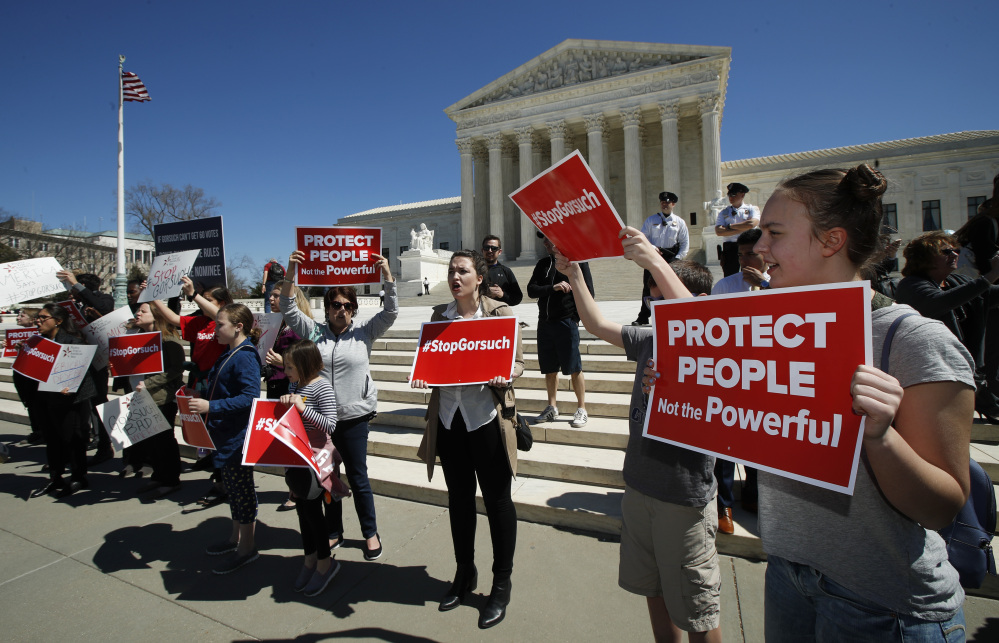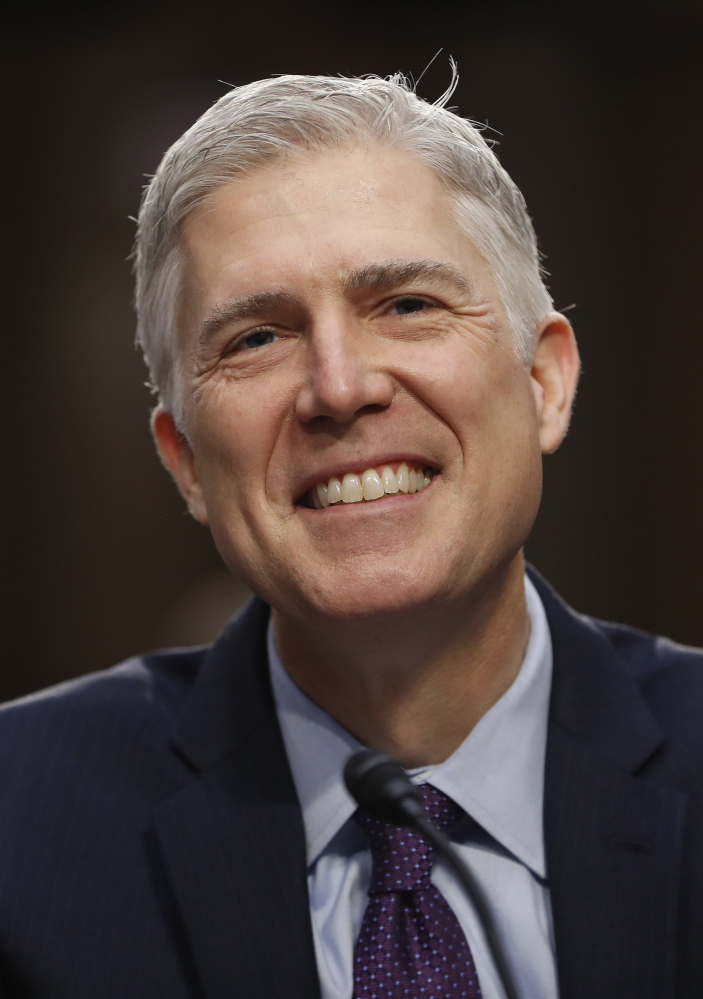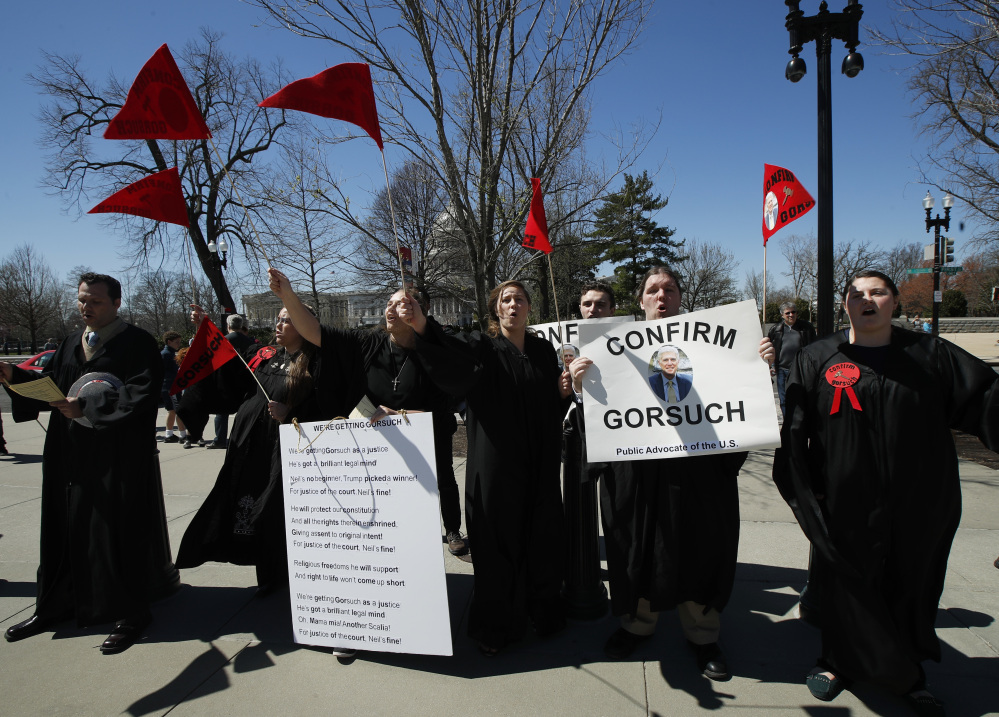WASHINGTON — The Senate is headed for a tense showdown over President Trump’s Supreme Court nominee that could have far-reaching consequences for Congress, the high court and the nation.
Majority Leader Mitch McConnell and his Republicans are determined to confirm Judge Neil Gorsuch within the week. But to do so, they will likely have to override Democratic objections and unilaterally change Senate rules so that Gorsuch can be confirmed with a simple majority in the 100-seat chamber, instead of the 60-voter threshold.
Though it may seem arcane, the approach is known on Capitol Hill as the “nuclear option,” because it strikes at the heart of the Senate’s traditions of bipartisanship and collegiality.
It would allow all future Supreme Court nominees to be confirmed without regard to the objections of the minority party. And senators of both parties say that proceeding with the rules change could ultimately lead to elimination of the minority party’s ability to block legislation via filibuster, one of the few remaining mechanisms that force bipartisan cooperation in Congress.
“Once you go down this path it’s awful easy just to keep going, and that is not a good thing,” said Sen. Pat Roberts, R-Kan., a senior lawmaker.
As of now, Gorsuch claims support from 54 senators – the 52 Republicans, along with two moderate Democrats who are up for re-election in states Trump won, Joe Manchin of West Virginia and Heidi Heitkamp of North Dakota. Though Democrats remain shy of the 41 votes that would be required to mount a filibuster and trigger a rules change, it is the widely expected outcome.
Gorsuch, 49, has served more than a decade as a federal appeals court judge based in Denver. He is mild-mannered but deeply conservative, in the mold of the late Antonin Scalia.
McCaskill and other Democrats have pointed out that while Gorsuch’s confirmation won’t change the ideological balance of a court that will be likely to split 5-4 on important cases, that could be what happens next as liberal justices age along with Justice Anthony Kennedy, 80, who often acts as a swing vote.
Republicans argue that the filibuster has almost never been used against a Supreme Court nominee and they are right; even Clarence Thomas got onto the court without a filibuster, despite highly contentious confirmation hearings over sexual harassment claims from Anita Hill.
The only Supreme Court nominee to have been blocked by a filibuster was Abe Fortas, President Lyndon Johnson’s nominee for chief justice in 1968. After a procedural vote failed, Johnson withdrew Fortas’ nomination. Fortas was already a sitting justice on the high court.
But the Supreme Court blowup has been a long-time coming, and with politics ever more polarized, there appears to be no room for compromise
Send questions/comments to the editors.





Success. Please wait for the page to reload. If the page does not reload within 5 seconds, please refresh the page.
Enter your email and password to access comments.
Hi, to comment on stories you must . This profile is in addition to your subscription and website login.
Already have a commenting profile? .
Invalid username/password.
Please check your email to confirm and complete your registration.
Only subscribers are eligible to post comments. Please subscribe or login first for digital access. Here’s why.
Use the form below to reset your password. When you've submitted your account email, we will send an email with a reset code.